|
Quick -- think of your ten favorite writers! Write down their names -- and do it quickly... no stopping to hem and haw and weigh their relative merits. Just write down ten names of writers you truly enjoy reading: classic, contemporary, fiction, nonfiction, poetry... just get those names down. (Musical interlude while I wait -- I am currently listening to Mussorgsky's Pictures at an Exhibition...) Alright, now look at that list of names. How many are men? How many are women? Here's mine (in the order they came to mind): Now, on any given Sunday (or any other day of the week, for that matter), this list would, in all probability, be different. I read eclectically: fiction, nonfiction, children's literature. I am always discovering a new favorite author. But these were the ones that came to mind today. So, my list consists of six men and four women. But I am curious as to what the gender proportions would be on the lists of other readers, both female and male. My guess is that the lists of men would contain far more male writers, while the lists of women would, in general, more balanced, like mine, primarily because females, young, old and "of a certain age," are far more likely to read fiction in which the main character is male than boys and men are willing to read books in which the main character is female. And just what is the point, you are probably asking?Well, Grammarly, an automated proofreading platform that checks for grammar and spelling errors, as well as detecting plagiarism, recently released a survey it conducted to determine an answer to the age-old question: Who writes better, men or women?
The poll, which received over 3,000 responses, concluded that overall, based on a variety of factors, women are better writers than men. For example, according to the poll, women are more likely to create well-developed characters, while men are more likely to get to and through the plot points. Women are, according to the poll, far more likely to write long, descriptive sentences than men. (Although I am thinking this is a recent development... either that, or Charles Dickens, William Faulkner and Nathaniel Hawthorne were pseudonyms for Cecily Dunning, Wilma Flossbender and Nannette Hairston-Smith. Now, depending on your mood and inclination, you might be looking for one type of writing or the other. So I am not sure we can ever really come to a definitive conclusion. And 3,000 responses is a minuscule sample of readers; however, it sure makes a fun debate. I would be interested in seeing if a reader could tell --- just by reading a paragraph or two --- if the author was a man or a woman. So here goes: "The baron, followed by the count, traversed a long suite of apartments, in which the prevailing characteristics were heavy magnificence and the gaudiness of ostentatious wealth, until he reached the boudoir of Madame ________, a small octagonal-shaped room, hung with pink satin covered with white Indian muslin; the chairs were of ancient workmanship and materials; over the doors were painted sketches of shepherds and shepherdesses after the style and manner of Boucher; and at each side pretty medallions in crayons, harmonizing well with the fittings-up of this charming apartment, the only one though out the vast hotel in which any distinctive taste prevailed." Here's another: "Still she stared into his face with that slow, full gaze which was so curious and so exciting to him. He was acutely and delightfully conscious of himself, of his own attractiveness. He felt full of strength, able to give off a sort of electric power. And he was aware of her blue, exposed-looking eyes upon him. She had beautiful eyes, flower-like, fully opened, naked in their looking at him. And on them there seemed to float a curious iridescence, a sort of film of disintegration, and sullenness, like oil on water." And one more: "It was a citified, stylish man with his hat set at an angle that didn't belong in these parts. His coat was over his arm, but he didn't need it to represent his clothes. The shirt with the silk sleeve holders was dazzling enough for the world. He whistled, mopped his face and walked like he knew where he was going." Care to hazard at a guess at the gender of each writer?
0 Comments
Crazy hair and an interview... Thank you to Susan Dibble for a great article! And to photographer Paul Michna for making me look good, even though I had just walked in from the pouring rain!
What's it like for an author to sit in on a book club discussion... of her book?
Since I have a particular affection for alphabet books, I will describe it thusly: Amazing...Bizarre...Constructive... Delightful... Enlightening... Female-centric... Gracious... Heartwarming... Insightful... Joyous... Kitschy... Literate... Memento (Mori and otherwise)... Nice ... Observant ... Piquant... Quixotic ... Reader(ly) okay I made this word up ... Strange ... Touching ... Undeniably fun ... Vivacious ... eXhilarating ... Youthful ... Z(definitely did not put me to sleep!) Thank you so very much to the Liberty Belles Book Club of Wheaton, Illinois for inviting me to your meeting. It was simply out-of-this-world to listen to you discuss my characters and their motivations. I learned a lot about how to connect to a reader just by listening to your comments. I will forever treasure the experience! The glass half empty: "The foliage has been losing its freshness through the month of August, and here and there a yellow leaf shows itself like the first gray hair amidst the locks of a beauty who has seen one season too many." ~Oliver Wendell Holmes The glass half-full: "Autumn is a second spring when every leaf is a flower." ~Albert Camus "Delicious autumn! My very soul is wedded to it, and if I were a bird I would fly about the earth seeking the successive autumns." ~George Eliot "My sorrow, when she's here with me, thinks these dark days of autumn rain are beautiful as days can be; she loves the bare, the withered tree; she walks the sodden pasture lane." ~Robert Frost "Besides the autumn poets sing, A few prosaic days A little this side of the snow And that side of the haze." ~Emily Dickinson “That country where it is always turning late in the year. That country where the
hills are fog and the rivers are mist; where noons go quickly, dusks and twilights linger, and midnights stay. That country composed in the main of cellars, sub-cellars, coal-bins, closets, attics, and pantries faced away from the sun. That country whose people are autumn people, thinking only autumn thoughts. Whose people passing at night on the empty walks sound like rain.” ~Ray Bradbury 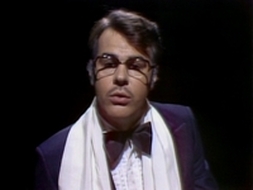 Leonard Pinth-Garnell (aka Dan Aykroyd) Thanks to my Highsmith Librarian's Desk Calendar, I learned that today, August 18th, is National Bad Poetry Day. Of course I had to do a little research on this holiday of which I knew absolutely nothing (except that it sounds delightfully fun!) Turns out that National Bad Poetry Day was not created by Congress, nor the Library of Congress, nor Hallmark (that would be National Sappy Poetry Day), nor Leonard Pinth-Garnell, but by entrepreneurs Thomas and Ruth Roy, who apparently copyrighted the idea through their "Wellcat" website. (They also apparently sell herbs, but I did not venture a mouse click to find out which kind.) The Roys suggest celebrating the holiday by inviting some friends over to write some wretched poems and then sending them to your old high school English teachers. I'll admit that sounds like a hoot to me (but then I'm a writer.) If you don't have time to put together a poetry party, you can mark the day by checking out the bad poetry compiled at (where else?) Very Bad Poetry ("the last refuge of the world's worst poetry.") There you can find such gems as "Mexican Food" (which, to pinch a Pinth-Garnell phrase, really bites the big one (pun fully intended). Or take a gander at the execrable haiku "Butterfly" (as Pinth-Garnell would say "exquisitely awful") or the monumentally ill-advised "Fattypants." You might also despise the horrifically sadistic "Bachelor of IT" and the stunningly bad favorite of physicists everywhere, "Schrodinger's sex panther." Or take a moment to jot down some unrelentingly bad verse yourself and post it. If you do, send me the link so we can all enjoy. Or feel free to write some bad (as opposed to badass) poetry in the comment box. As Leonard Pinth-Garnell would put it, "There now, that wasn't so good, was it?" While doing research on Faraday cages for the novel I am currently writing, I found myself trolling the not-so-shadowy underworld of survivalist/preparedness blogs. One word: Wow! I realized that I have been very lax in my maternal duties to stock the house with a year's supply of food, toiletries and medical necessities against this decade's Y2K-like paranoia-inducer: an EMP event. I also stumbled across this silly tidbit of a video. I have never been one to resist the charms of Peeps, in solid state or reduced to goo: Henry David Thoreau, born this day in 1817, was a Renaissance man who just happened to live in 19th century America. He was a poet and philosopher who worked for a time as a down-to-earth surveyor and pencil-maker, a naturalist who reveled in the wild but was absolutely not a cranky hermit, and a tax-resister who wrote the book, literally, on civil disobediance. 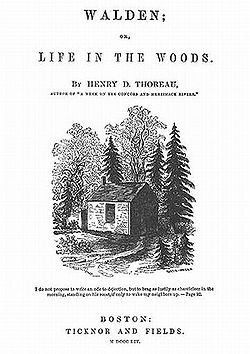 "A truly good book teaches me better than to read it. I must soon lay it down, and commence living on its hint. What I began by reading, I must finish by acting." Thoreau didn't go to Walden Pond just to commune with Nature. He was looking for a quiet place to do some writing and his friend Ralph Waldo Emerson had this nice rustic place on the water. It was perfect for getting a little solitude and being able to tune-out all the hassles of modern life! I can't imagine what he would think about our wired 24-7-365 lifestyle. He might be one of those people running down the street buck-naked, his crazed rants captured on someone's iPhone and posted to YouTube as it happens. As he noted in a chapter of Walden: "I went to the woods because I wished to live deliberately, to front only the essential facts of life, and see if I could not learn what it had to teach, and not, when I came to die, discover that I had not lived." He wasn't a Material Guy and frankly, wasn't pulling in a lot of benjamins at the time so he figured he could reduce his material needs by living simply, rather than support a lifestyle back in Concord that he didn't need or really care about. And if he could do a little communing and meditation, well, so much the better. 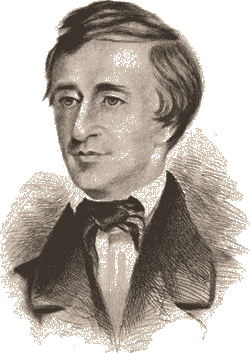 Portrait of Thoreau by Samuel Rowse (1854) In his famous lecture, "Life without Principle" given first in 1854 at Railroad Hall in Providence, Rhode Island and several more times over the course of the next year, Thoreau argued that work should be something we love in order to lead a life worth living, not simply to make a living. Well, that's all very well and good for a Harvard man to spout such idealistic notions, but he seems to have completely forgotten about the poverty-striken masses who were (and still are) struggling to pay the rent and put food on the table for their children. The ideal fulfilled life may indeed be found in pursuing a path that leads us to what we truly love to do, and then work doing that; however, the reality is that many people lack that freedom and must take a job because it comes with a paycheck. But I'm willing to forgive him because he did write a lot of great quotes about books! "Books are the carriers of civilization. Without books, history is silent, literature dumb, science crippled, thought and speculation at a standstill. I think that there is nothing, not even crime, more opposed to poetry, to philosophy, ay, to life itself than this incessant business." 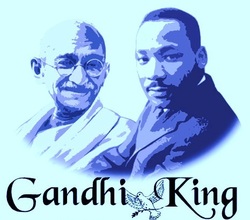 Mohandas Gandhi, Martin Luther King, Jr., Leo Tolstoy, Martin Buber and Supreme Court Justice William O. Douglas all have this in common: an admiration for Thoreau's essay of 1849 "Civil Disobedience," originally published as "Resistence to Civil Government." (It not clear whether he actually ever uttered the words "civil disobedience.")But beyond the big names, the essay was read in the 1940's by the Danish resistance; in the 1950's, it was brandished by those who opposed McCarthyism; in the 1960's, it was influential in the early struggle against South African apartheid; and in the 1970's it was discovered by a new generation of anti-war activists. The essay contains the famous quote often misattributed to Thomas Jefferson: "I heartily accept the motto, — ‘That government is best which governs least.'" Thoreau was actually was referring to an existing saying that was the motto for the journal The United States Magazine and Democratic Review, which was edited by American journalist and editor John Louis O’Sullivan. In 1844, Thoreau’s old pal Emerson also wrote in an essay: “The less government we have, the better.” (What's a little borrowing among friends?) Hmm, I foresee Thoreau's face soon will be glaring out at me from posters held aloft by Tea-Party protesters. Here's what his man-crush Emerson had to say about him: "He was bred to no profession; he never married; he lived alone; he never went to church; he never voted; he refused to pay a tax to the State: he ate no flesh, he drank no wine, he never knew the use of tobacco; and, though a naturalist, he used neither trap nor gun. He chose, wisely, no doubt, for himself, to be the bachelor of thought and Nature. He had no talent for wealth, and knew how to be poor without the least hint of squalor or inelegance. .... Thoreau was sincerity itself ..." You can read more about this fascinating fellow with these biographies, which range from the scholarly to the refreshingly whimsical:
Henry Thoreau: A Life of the Mind - Robert Richardson, Jr. (1988) Henry Thoreau: A Biography - Walter Harding (2011) Henry Thoreau: A Man for All Seasons - Douglas T. Miller (2001) The Thoreau You Don't Know - Robert Sullivan (2009) Happy birthday, Wilhelm Carl Grimm (1786-1859), the younger of the Grimm brothers, who traveled throughout their native Germany, collecting oral folklore and compiling it into several volumes entitled Children’s and Household Tales, or more colloquially as Grimms’ Fairy Tales. The original tales were rather bloody and gruesome (some might say, grim), but when the brothers discovered that children were reading them, they softened them up a bit (the term “a bit” being relative, for in their version of Cinderella, called “Ashputtel,” the jealous stepsisters cut off their toes in an attempt to force their feet to fit the special shoe). In recent years, there have been a spate of new children’s and young adult books (and a few television shows as well) that have used the Grimm canon and legacy as a springboard for various flights of fancy. 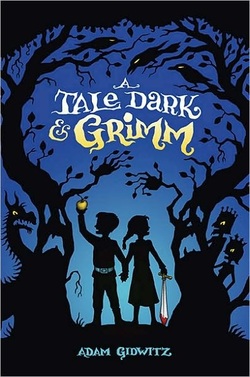 A Tale Dark & Grimm, by Adam Gidwitz, is an amazingly creative take on the tales that twists and turns, terrifies and tickles the fancy. With a Lemony Snicket-like narrator and the plucky Hansel and Gretel as protagonists, the story winds its way through a succession of other, more obscure tales — “The Three Golden Hairs,” “Faithful Johannes,” and “Brother and Sister” to name a few. In this re-imagining, Hansel and Gretel’s parents are not a poor woodcutter and his wife, but the King and Queen of Grimm. As always, parents do unspeakable things to their children. The twist? The brother and sister aren’t the abandoned; it is they who leave-- to find better parents. The magic is that as Hansel and Gretel become heroes by going out on this quest and by saving others, they also come to understand the source of their parents’ weakness’ and failings. High level? Yes -- this isn’t R.L. Stine’s cotton candy horror. But at the same time, “A Tale Dark & Grimm” is truly, laugh-out-loud funny, in the way of The Series of Unfortunate Events. How can you miss with an opening line like “Once upon a time, fairy tales were awesome.” 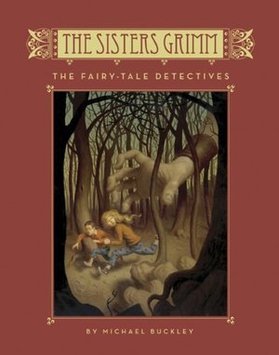 Michael Buckley brought out the first of The Sisters Grimm series in 2005, The Fairytale Detectives, and has been riding the fantasy wave ever since, with six additional novels spinning the tales of Sabrina and Daphne Grimm, sisters and the remaining descendants of the original Grimm Brothers. The premise here is that the fairytales were actually criminal case files, and all the characters are actually the residents (they prefer to be called “Everafters”) of a town in upstate New York called Ferryport Landing. Each book in the series presents a mystery or two for the girls to solve and they are intrepid sleuths who are bound and determined to get to the bottom of the most puzzling enigma: what happened to their parents? (Yes, another set of orphans; well, semi-orphans, they discover they have a long-lost grandma in the first book.) 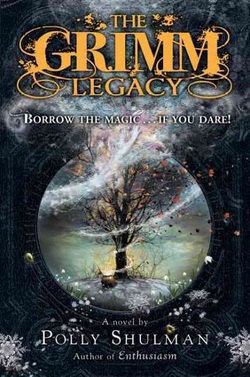 The Grimm Legacy by Polly Shulman takes the premise that the magical objects in fairytales are real-- and that they actually have magical properties. Eight grader Elizabeth gets a job as a page at the New York Circulating Material Repository, which is like a library for objects, all types of objects: the obscure and the most-common, those of historic importance and those with contemporary ties. And then there are those magical objects, the secret ones, tucked away in the basement. That’s where she encounters the Grimm Collection, a room of magical items straight from the Grimm Brother's fairy tales. And that’s where the mystery starts: the magic mirrors, golden slippers, seven-league boots and other items are starting to disappear. Someone is replacing them with ordinary, nonmagical substitutes. And before she knows it, she and her fellow pages - perfect Anjali, hunky Marc, and snarky Aaron - are suddenly pulled into a semi-kooky, semi-dangerous adventure. I wish you much Grimm reading...enjoy! And remember, you can always go back to the originals... there's a reason they are inspiring so many re-imaginings...they are truly timeless tales. Unrequited love...it's been fodder for novelists and songwriters ever since our ancestors sat around the fire, entertaining themselves with stories and music. So it's only appropriate to highlight some of the best of this genre on this most special day... I Will Possess Your Heart – Death Cab for Cutie Creepy, stalkerish, but oh, the beautiful clarity of the lyrics: "How I wish you could see the potential, the potential of you and me. It's like a book elegantly bound but, in a language that you can't read. Just yet." Great Expectations by Charles Dickens Friends and particularly fellow author Wilkie Collins pressured Dickens into rewriting the end of this novel so that Pip and Estella could be united, but the original seems more suited to the tone and arc of the story. What a tale of scorned love. Pip spends the entire novel infatuated with a cold-hearted beauty who never returns his affection. Meanwhile, loyal Biddy loves him truly, until she finally gives up and settles for Joe Gargery instead. I Want You to Want Me - Cheap Trick The title says it all. This guy will shine his shoes and put on a new shirt if you’ll only pay him some attention and say those three little words. Notre-Dame de Paris (The Hunchback of Notre-Dame) by Victor Hugo Poor Quasimodo, the deformed bell-ringer, loves the gypsy girl, Esmeralda, who seems to be the only Parisian who has ever shown him any kindness. But, alas, she doesn't "love" him "that way." When she is hanged as a thief, Quasimodo kills the priest who betrayed her and then lies with her corpse until he dies of starvation. All that and gargoyles, too! You Don't Know Me - Ray Charles A classic from a musical legend, about loving someone who sees you as just a friend. Cyrano de Bergerac by Edmund Rostand The noble Cyrano is a brave soldier, as well as a poet, a gentleman oh so talented in many way, one of those Renaissance men. He is head-over-heels in love with Roxane (not that one). She also happens to be his cousin. That's always a problem (LOL). He is also weighted down by that enormous nose. Being a brilliant writer, he selflessly agrees to write love letters on behalf of handsome but totally inarticulate Christian, who can't put three subtle words together to woo his crush, the same Roxane (not that one). Christian is slain and Roxane gets herself to a nunnery. It is only years later, as Cyrano bites the big one himself (not his nose), that she comes to realize it was he who wooed her so eloquently. Wuthering Heights by Emily Bronte Boy meets girl is given a trailer-trash twist here because Cathy and Heathcliffe are brought up as siblings (okay, adopted siblings, but still). Their passion is as tempestuous as the stormy Yorkshire moor setting, and there are definitely more than a few indications that Heathcliff is more of a disturbed sociopath than your typical romantic hero. I mean, here is a man with a taste for murdering small animals and kidnapping potential partners. F* You by Cee-lo Green Admit it, we’ve all wanted to say the things that Cee-lo sings. A succint kiss-off to someone you never had a chance with. One for the ages. For those sensitive souls, I have posted the "clean" version. And I was too lazy to log in to YouTube to get the hardcore one. If Backwards Day made me think of opening lines, perhaps I need psychoanalysis, because Groundhog Day made me think of closing lines... the greatest of all, IMHO...
1. So we beat on, boats against the current, borne back ceaselessly into the past. –F. Scott Fitzgerald, The Great Gatsby (1925) 2. He loved Big Brother. –George Orwell, 1984(1949) 3. ‘It is a far, far better thing that I do, than I have ever done; it is a far, far better rest that I go to than I have ever known.’ –Charles Dickens, A Tale of Two Cities (1859) 4. I lingered round them, under that benign sky; watched the moths fluttering among the heath, and hare-bells; listened to the soft wind breathing through the grass; and wondered how any one could ever imagine unquiet slumbers for the sleepers in that quiet earth.–Emily Brontë, Wuthering Heights (1847) 5. Lastly, she pictured to herself how this same little sister of hers would, in the after-time, be herself a grown woman; and how she would keep, through all her riper years, the simple and loving heart of her childhood; and how she would gather about her other little children, and make their eyes bright and eager with many a strange tale, perhaps even with the dream of Wonderland of long ago; and how she would feel with all their simple sorrows, and find a pleasure in all their simple joys, remembering her own child-life, and the happy summer days. –Lewis Carroll, Alice’s Adventures in Wonderland (1865) 6. And so, as Tiny Tim observed, God bless Us, Every One! –Charles Dickens, A Christmas Carol (1843) 7. “All that is very well,” answered Candide, “but let us cultivate our garden.” –Voltaire, Candide (1759) 8. But wherever they go, and whatever happens to them on the way, in that enchanted place on the top of the Forest, a little boy and his Bear will always be playing. –A. A. Milne, The House at Pooh Corner (1928) 9. From here on in I rag nobody. –Mark Harris, Bang the Drum Slowly (1956) 10. “Tomorrow, I’ll think of some way to get him back. After all, tomorrow is another day.” –Margaret Mitchell, Gone with the Wind (1936) |
AuthorTo find out more about me, click on the Not Your Average Jo tab. Archives
February 2024
Categories
All
|
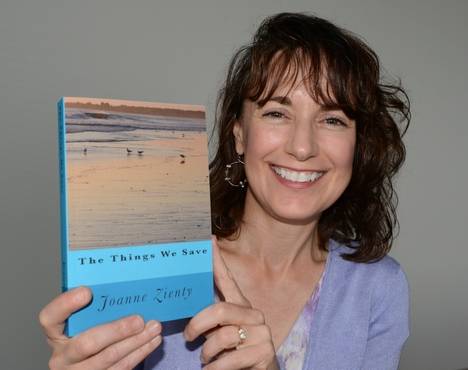
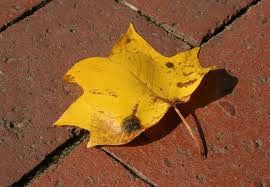

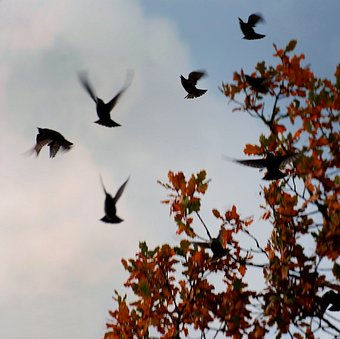
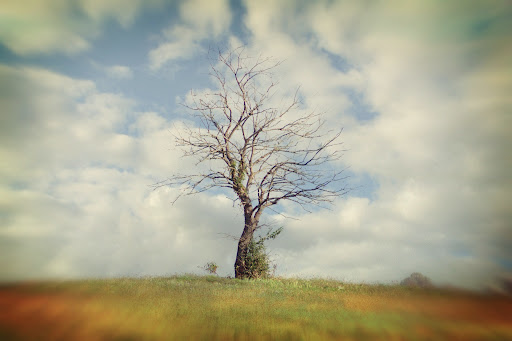
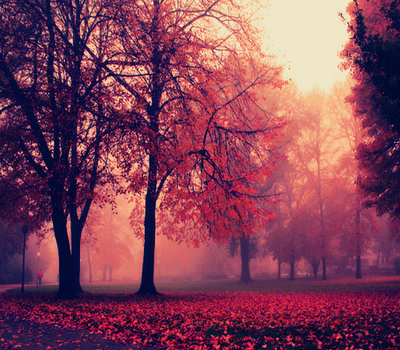
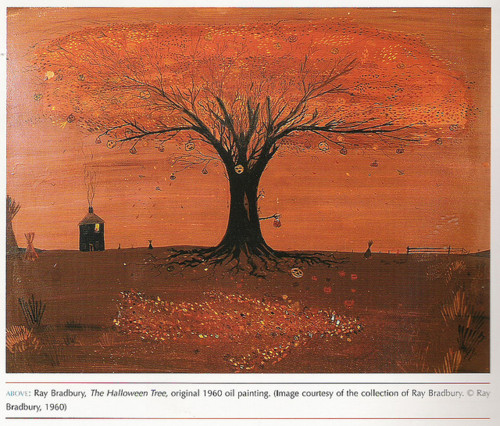
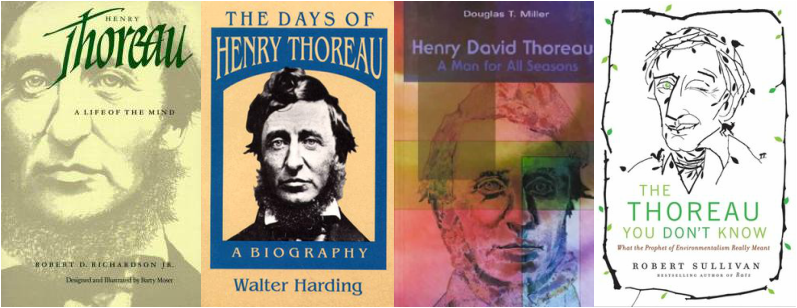
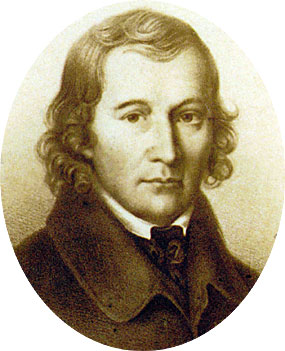
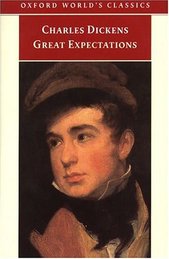
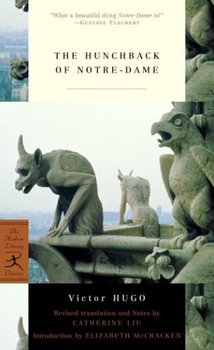
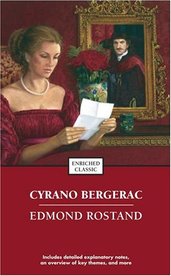
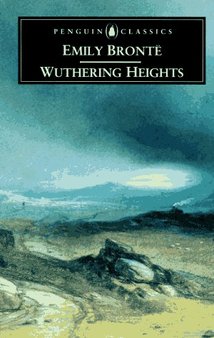
 RSS Feed
RSS Feed